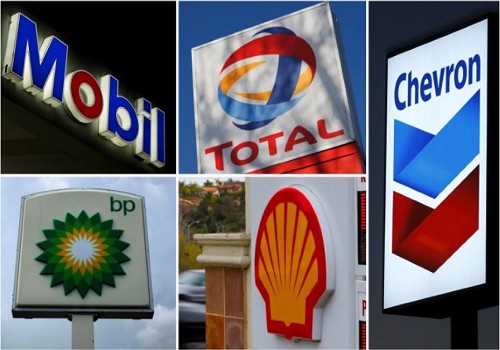The Nigerian Upstream Petroleum Regulatory Commission (NUPRC) and other regulatory agencies are tasked to scrutinise the ExxonMobil-Seplat deal and other ongoing divestments by International Oil Companies (IOCs) in the country to conform with extant laws.
ExxonMobil had announced last week that it has reached an agreement to sell its equity interest in Mobil Producing Nigeria Unlimited to Seplat Energy, a Nigerian independent oil and gas company, through its wholly-owned subsidiary Seplat Energy Offshore Limited.
Read also:
- COVID-19: ExxonMobil Shakes As 14,000 Staffers Soon To Go
- ExxonMobil Joins Chevron In Job Cuts
- COVID-19: Akwa Ibom Govt, ExxonMobil At Loggerheads Over Quarantine Centres
This comes on the heels of similar divestment deals and discussions in recent years that have seen the IOCs moving deeper offshore and selling off their assets to domestic firms, a move that has been criticised by communities and civil society groups as amounting to an abdication of responsibility.
A statement dated March 3, 2022 by Policy Alert, a civil society organisation working for economic and ecological justice in the Niger Delta, on the topic EXXON MOBIL-SEPLAT DEAL: POLICY ALERT DEMANDS STRONGER SCRUTINY BY REGULATOR, said this should be in a manner that does not further undermine the well-being of host communities and the environment.
“The ExxonMobil-Seplat deal is another one in a wave of worrisome recent divestments,” said Policy Alert’s Senior Programme Officer, Mfon Gabriel, in a statement released this morning.
“This is the time for the Nigerian Upstream Petroleum Regulatory Commission (NUPRC) and other regulatory bodies to exercise their mandates in defense of the national interest and in a manner that protects the rights of communities and the environment.”
The statement also noted: “We find ExxonMobil’s practices highly problematic and are concerned that Seplat has rushed in to inherit such a negative legacy.
“Exxon’s current plans for reducing carbon intensity in its global operations are highly inadequate in the face of climate change and the energy transition. Its destruction of health, livelihoods, and environment of Nigerian communities where it operates has been widely deplored.
The company has contributed to the vulnerability of Nigeria’s oil receipts to corruption, not least by actively working to prevent regulation aimed at improving transparency of project-level payments by US-listed extractive companies such as itself.
“Add to these tonnes of outstanding judgment debts, unresolved court cases, unsettled compensation claims by communities affected by its operations, aging infrastructure, massive clean-up obligations, and the huge task of decommissioning and abandonment ahead, and it is clear that Seplat is purchasing a really toxic and potentially explosive mix.”
It added: “If the strategy of IOCs is to move further from the reach of communities and regulatory actors by selling off its shallow water assets while remaining active in the deep offshore, they must be reminded that this ostrich-style denial cannot wish the issues away.”
While cautioning Seplat to be prepared to address a raft of economic, social, and governance (ESG) risks as it finalizes the purchase in the months ahead, the organisation called on regulatory agencies and the National Assembly to increase oversight of deep offshore operations as the theatre of action is shifting there in the near future as a result of divestments.
“Nigeria’s weak regulatory environment and poor legislative oversight is one of the biggest factors responsible for the huge ESG costs of oil extraction in Nigeria and the current wave of divestments presents not just a further ESG threat but also an opportunity for the sector’s regulators to insist that companies do the right thing before they leave and to ensure that successor firms have factored in all costs including those related to decommissioning and abandonment,” Policy Alert said.
The statement also observed that NNPC Limited shares a huge liability with its Joint Venture partners on some of these issues as a result of its equity ownership and associated infrastructure it shares on some of the divested assets, whether onshore or offshore.
Nigerian billionaires buying the companies’ assets
For more than 60 years, Shell, Exxon Mobil, Chevron, Agip, Texaco and Total brand names were synonymous with oil asset ownership, especially in the upstream sector of the Nigeria’s oil the industry.
However, as of Friday, February 25, three have divested shares in their companies.
Exxon Mobil Corporation (ExxonMobil) which has been the most recent major oil company to leave Nigeria sold its stake in Mobil Producing Nigeria Unlimited to Seplat, a Nigerian oil corporation, for $1.3 billion.
The UK-based company Royal Dutch Shell left Nigeria in 2021, after completion of sale of its assets to TNOG Oil and Gas Limited, while Texaco sold off its assets to Chevron in 2000.
Businessman Tony Elumelu, owner of TNOG Oil and Gas Ltd, purchased Shell assets in 2021.
Sayyu I. Dantata, half-brother of Africa’s richest person, Aliko Dangote through his company MRS Holdings, bought Chevron’s upstream business, OMLs 83 and 85 in 2015.
ABC Orjiako is the Chairman and co-founder of Seplat, the company that took over the assets of ExxonMobil. Conoil Plc, Mike Adenuga’s oil firm, is also mentioned as leading the bid process for OMLs 86 and 88 of Chevron.
It is learnt that the oil companies are going to invest in Libya following the end of the long-running war in the country.
It was also rumoured that the international oil companies are leaving Nigeria due to increase in bunkering and vandalism of oil facilities.

